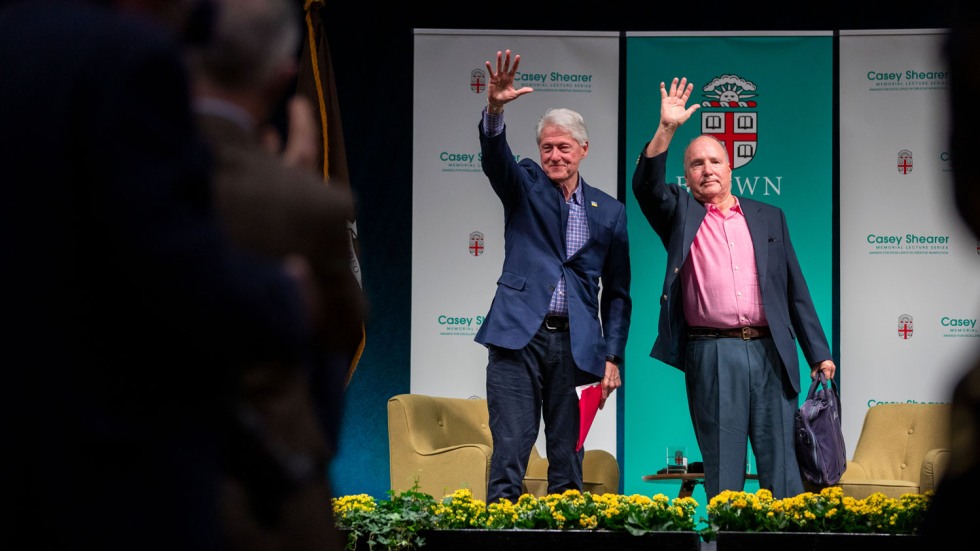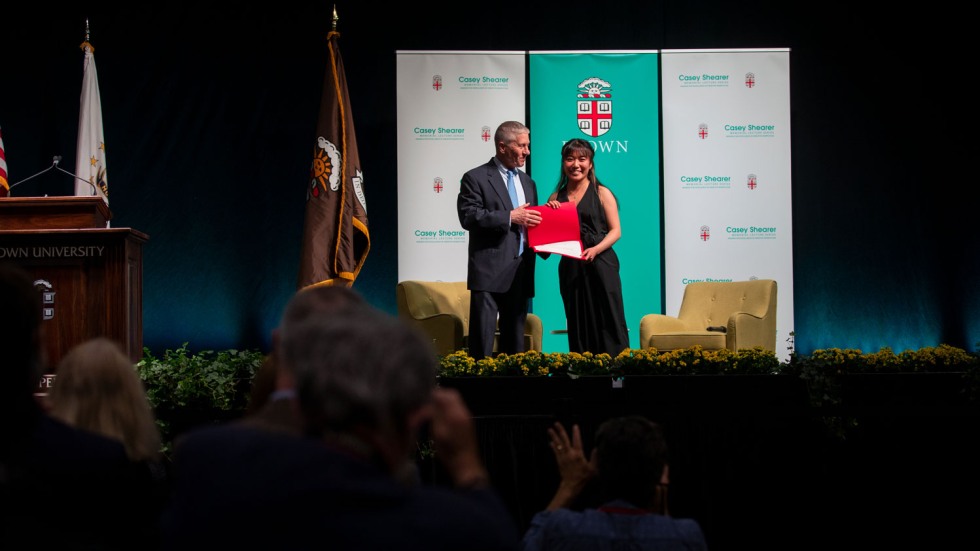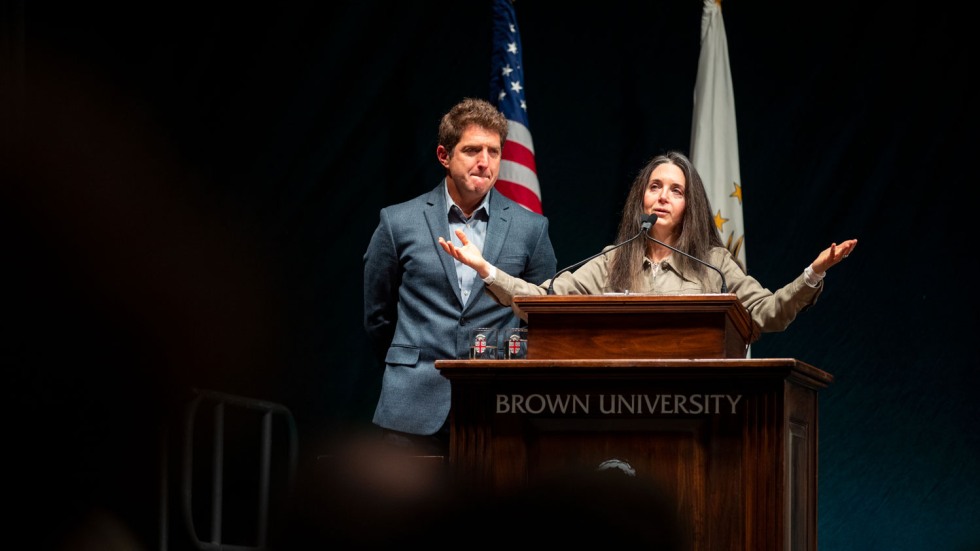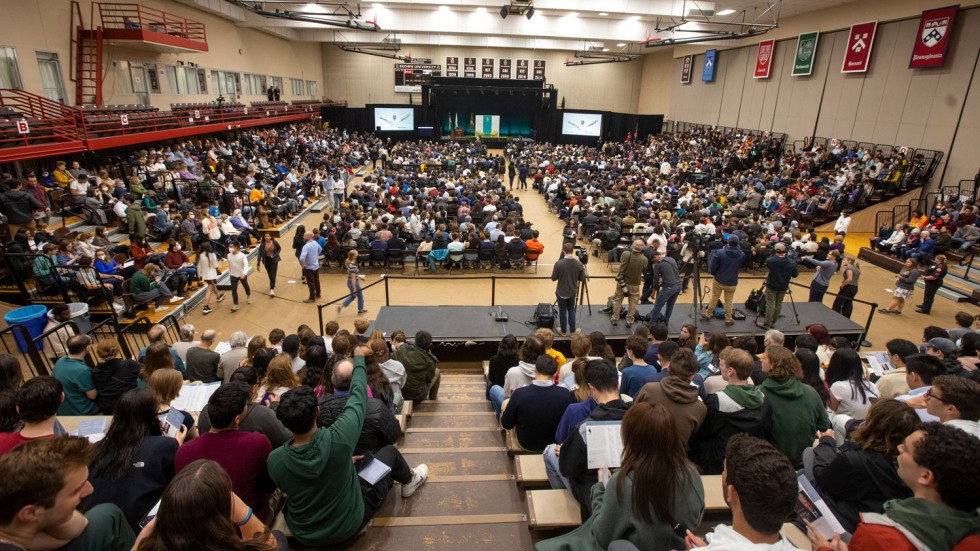PROVIDENCE, R.I. [Brown University] — In 2007, in the last days of Boris Yeltsin’s life, Bill Clinton paid the former Russian president a visit. After spending some time reminiscing, talk turned to the future of the Russian state – and specifically Vladimir Putin, who was then in the second term of his presidency.
“I said [to Yeltsin], ‘I’m just not sure about Putin,’” Clinton recalled. “He’s very able, but I don’t think he believes in democracy. [Yeltsin] said, ‘You may be right.’”
In the two decades since leaving office, the 42nd president of the United States said he has “spent sleepless nights thinking about” whether Russia is doomed to remain under authoritarian rule for decades to come. Clinton admitted he worries about the global implications of Putin’s leadership, yet he also said he is certain of one thing: The U.S. didn’t intentionally disengage from Russia during his presidency and pave the way for Putin’s invasion of Ukraine, as some critics have claimed.
“It is not true that we did anything to isolate, humiliate or ignore Putin,” Clinton said. “That’s the biggest load of bull you’ll ever hear.”
During a conversation held at Brown University’s Pizzitola Sports Center on Tuesday, April 26, Clinton discussed global politics, climate change, writing and music as part of the Casey Shearer Memorial Lecture, a series that typically brings prominent journalists, filmmakers and creative writers to Brown in memory of a University senior who died in 2000 on the eve of his graduation. Clinton spoke onstage alongside Casey Shearer’s father Derek Shearer, who met Clinton at Oxford University and later worked with him as U.S. ambassador to Finland. Clinton, who knew Casey Shearer from infancy, noted that he spoke at Shearer’s memorial service at Brown 22 years ago.
The former president said he first became wary of Putin after a 2006 birthday celebration for Yeltsin, during which Putin expressed interest in bringing the Clinton Foundation’s AIDS program to St. Petersburg. Clinton drew up a plan that would deliver low-cost treatment to AIDS patients in the Russian city, and Putin approved all of it — except the proposed cost per care, which Putin proposed quadrupling. Clinton refused to partner with Putin, citing concerns that the higher cost would prevent the foundation from treating other high-need patients in low-income countries.
“Putin said, ‘Give me a day or two to think about it,’” Clinton recounted. “They took the plan and did their own program. He was always kind of trying to build this klepto state.”



